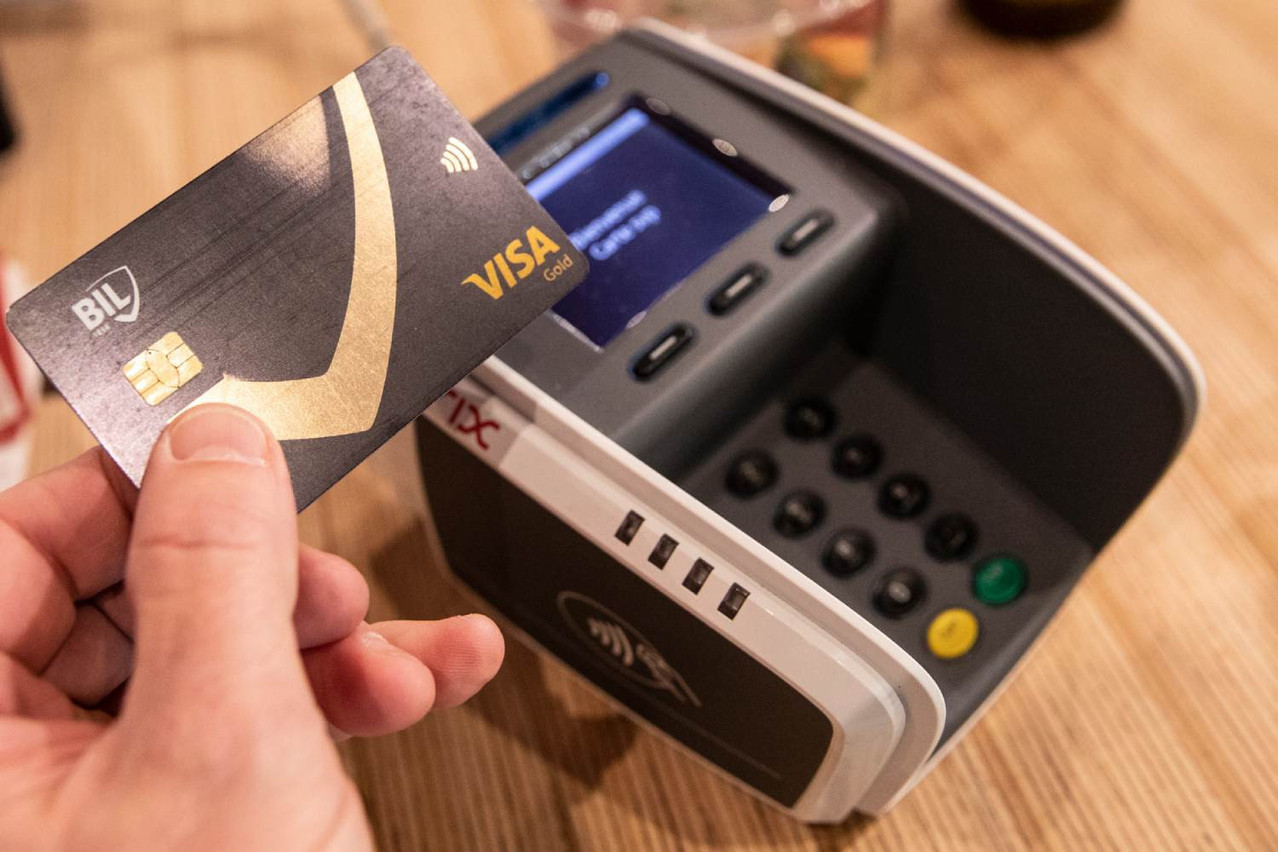For the first time, bankcards have overtaken cash as the preferred method of payment in retail outlets, according to an ECB study presented on 6 July by the ABBL at a conference on the future of commerce.
In 2019, card payments accounted for 39% of all transactions in Luxembourg shops. In just three years, that number rose to 52%. Over the same period, the share of cash payments fell from 54% to 39%.
“Contactless payments are proving extremely successful, accounting for 69% of card purchases in Luxembourg,” commented , head of innovation at the ABBL.
On the other hand, mobile payments remain marginal in the grand duchy, with a 5% market share. But this is higher than the European average, where they account for 3%.
Well-stocked wallets
Clearly, Luxembourg stands out from the 16 other countries included in the study, given that, in the EU as a whole, cash payments were in the majority in 2022: they accounted for 59% of transactions, whereas card payments made up 34% of the total.
It should be noted, however, that the grand duchy (together with Austria) appears to be the European country where individuals have the most money in their wallets, with an average of €120. “Some 46% of Luxembourg residents say they have cash reserves at home, compared with 38% in 2019. We can no doubt see this as an effect of the covid-19 pandemic, but also as a desire for security, better budget management and anonymity,” said Kautz.
According to the study, Luxembourg is the leading country in Europe for instant payments: 63% of people have access to this method of payment, where the actual transaction between the two bank accounts (if both are within the eurozone) takes fewer than ten seconds.
Instant payments will undoubtedly become the norm.
“This is a good sign, because instant payments will undoubtedly become the norm,” commented Kautz. From 2024 onward, all European banks will have to offer this means of payment at the same price as a conventional transfer. This should enable merchants and SMEs to receive funds more quickly than with conventional transactions, as the European Commission pointed out last autumn. The scheme also provides for checks on the beneficiary based on their IBAN and name.
The European Payment Initiative (EPI) brings together the major banks of the content as well as French payments company Worldline. It is expected to of the European cardless instant payment system.
The deployment of EPI in e-commerce is scheduled for the end of next year, and then in 2025 for physical retailers. For the record, EPI . The operator specialises in smartphone payments, both between businesses and between individuals.
The study also shows that, in Luxembourg, 25% of mobile payments are made between individuals versus an EU average of 10%. This channel therefore holds great potential for operators active in this segment.
This article in French in Paperjam. It has been translated and edited for Delano.

